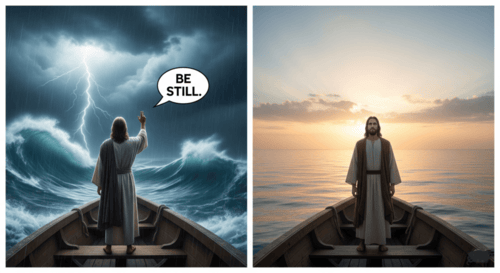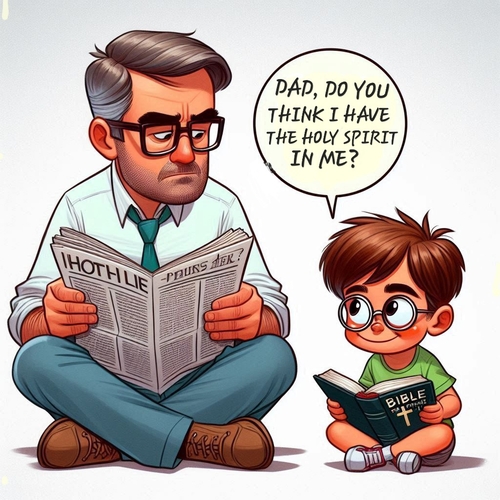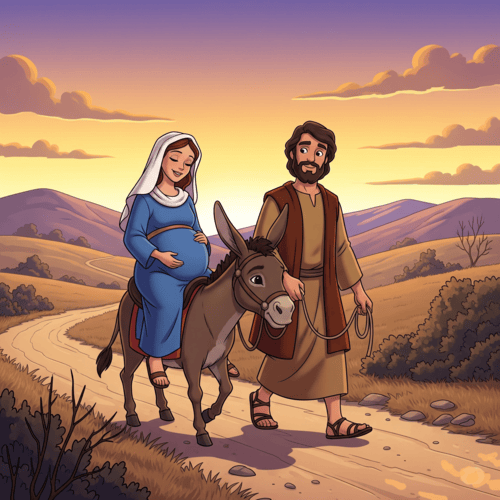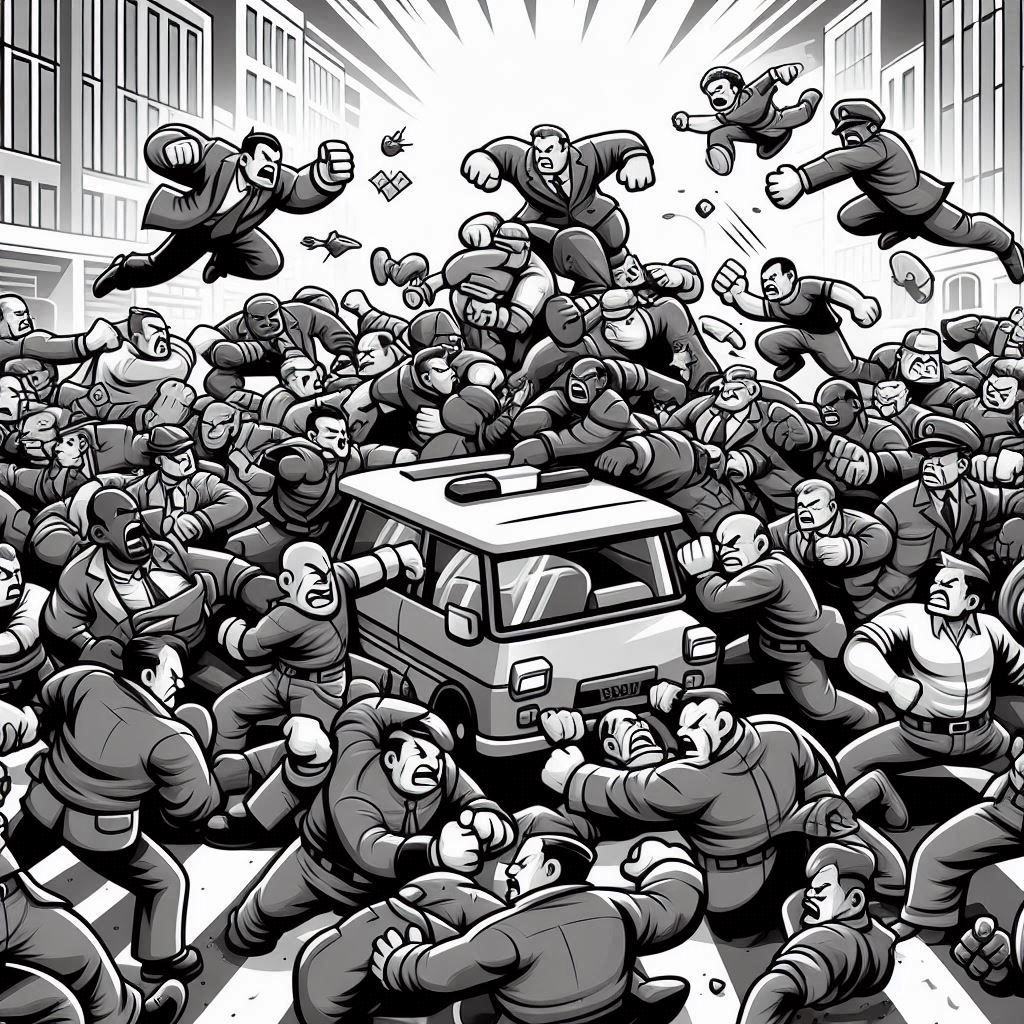Did God Step Into Time During Creation—Or Remain Outside It?
Imagine a master architect designing a building—does the architect become confined within the blueprint’s dimensions, or does he remain outside, directing every detail from above? This mirrors the question we hear asked regarding creation week: When God spoke creation into existence, was He bound by the temporal sequence He established, or did He remain sovereignly beyond time’s reach?
THE SCRIPTURAL FOUNDATION: GOD AS ETERNAL
Scripture consistently presents God as existing in an eternal “now”—not bound by temporal succession but encompassing all moments simultaneously. The Psalmist declares, “Before the mountains were brought forth, or ever you had formed the earth and the world, from everlasting to everlasting, you are God” (Psalm 90:2). Notice the language: God doesn’t exist through time but from everlasting to everlasting—transcending temporal boundaries entirely.
Peter reinforces this when he writes, “With the Lord one day is as a thousand years, and a thousand years as one day” (2 Peter 3:8). This isn’t poetic hyperbole but theological precision—God’s relationship to time is fundamentally different from ours. When Jesus declared, “Before Abraham was, I AM” (John 8:58), He used the eternal present tense, claiming not just pre-existence but timeless existence.
The book of Revelation captures this beautifully: God is “the Alpha and the Omega, who is and who was and who is to come” (Revelation 1:8). He doesn’t move through time’s sequence but holds all temporal moments simultaneously in His eternal consciousness.
Crucially, the creation account doesn’t describe God entering time but rather establishing temporal order from His eternal vantage point. The “days” of Genesis represent real temporal sequence for creation, not for the Creator.
THE PHILOSOPHICAL FRAMEWORK: ETERNALITY VS. EVERLASTINGNESS
Here we must make a crucial distinction that transforms our understanding.
- Everlastingness means existing through all time—like an unending timeline stretching infinitely in both directions.
- Eternality means existing outside time altogether—like an observer viewing an entire parade from a helicopter rather than marching within it.
Scripture firmly holds God is both eternal and everlasting. He doesn’t exist “through” time but “above” it. This preserves several essential truths about God’s nature.
From God’s eternal perspective, His creative acts are simultaneous—He sees and knows all of creation’s unfolding “at once.” Yet from creation’s temporal perspective, these acts unfold sequentially over six days. Think of how an author writes a story with sequential events while remaining outside the story’s timeline. The story has genuine temporal progression, but the author transcends that progression.
This framework preserves both divine immutability (God doesn’t change by creating) and the reality of temporal creation. God didn’t “wait” eons before creating, nor did He undergo change when He began creating. Instead, from His eternal standpoint, He established the temporal framework within which creation would unfold.
ADDRESSING COMMON OBJECTIONS
“Doesn’t Genesis describe God acting in sequence?” Genesis describes the temporal order of creation’s unfolding, not God’s eternal perspective. The text reveals how creation experiences God’s work—in ordered succession—while God Himself remains outside that temporal sequence. The six days are real for creation, not binding for the Creator.
“How can an eternal God relate to temporal creation?” God’s eternality doesn’t mean disconnection but transcendence. He simultaneously knows, sustains, and interacts with every moment of time without being constrained by temporal succession. Consider how you can observe an entire photograph at once while still recognising all the spatial relationships within it. Similarly, God relates to all temporal moments simultaneously from His eternal vantage point.
“Doesn’t this make creation less real?” Quite the opposite. God’s eternal perspective means every moment of creation—past, present, and future—is equally vivid and present to Him. Rather than diminishing temporal reality, this makes it infinitely more significant because every moment is held eternally in God’s perfect consciousness.
WHY THIS MATTERS
This understanding transforms our theology. It preserves God’s immutability—He doesn’t change by creating. It maintains His omniscience—He knows all temporal events simultaneously, not sequentially. It upholds His sovereignty—He’s not subject to temporal limitations or surprises.
For Christian living, this brings profound comfort. God hears all our prayers “at once” from His eternal perspective. His providence unfolds through temporal history while being grounded in eternal purpose. Our temporal sufferings are held within God’s eternal love, and our worship joins the eternal praise that transcends time itself.
For apologetics, this resolves apparent contradictions between divine foreknowledge and human freedom, between God’s immutability and His interaction with creation.
THE WONDER OF ETERNAL CREATION
So did God step into time during creation? Well, the Reformed consensus isn’t theological hairsplitting—it’s worship. When we affirm that God remained eternal during creation, we declare the Artist never became trapped in His masterpiece, that the Author never became confined to His story’s timeline. Instead, from His eternal throne, God spoke time itself into existence, establishing the temporal stage upon which His redemptive drama unfolds.
This is the God worthy of our praise: eternal, unchanging, yet intimately present in every moment He has made.
DID GOD STEP INTO TIME DURING CREATION? RELATED FAQs
What did Augustine teach about God and time during creation? Augustine argued in his Confessions that God created time itself along with the universe, meaning He couldn’t have created “in time” since time didn’t exist before creation. He famously asked, “What was God doing before He made heaven and earth?” and answered that there was no “before” because God created time itself. This laid the groundwork for the Reformed position that God remains outside temporal succession.
- How do Reformed scholars explain the “evening and morning” language in Genesis? John Frame argues the “evening and morning” phrases describe the temporal structure God imposed on creation, not His own experience of creating. RC Sproul emphasised these markers establish real chronological sequence for the created order while God Himself remains in His eternal “now.” They see this language as creation-centric description rather than God-centric narrative.
- Does God’s eternality conflict with His personal interactions in Scripture (like walking in Eden)? Reformed theologians distinguish between God’s eternal essence and His temporal accommodations. Herman Bavinck wrote God genuinely interacts with creation through what theologians call “temporal condescension”—He accommodates Himself to our temporal experience without changing His eternal nature. These interactions are real but don’t require God to become temporal any more than an author becomes fictional by writing dialogue for characters.
How do we explain God’s “repenting” or “changing His mind” in Scripture? Louis Berkhof and other Reformed scholars interpret these anthropomorphic expressions as descriptions of how God’s unchanging purposes appear from our temporal perspective. When circumstances change (due to human actions), God’s predetermined responses may appear as “changes of mind” to temporal observers, but they reflect His eternal, immutable plan unfolding in time. It’s the temporal situation that changes, not God’s eternal decree.
- What about the Incarnation—didn’t the Son enter time at the Nativity? Reformed Christology maintains the eternal Son assumed human nature without ceasing to be eternal God (the hypostatic union). Scholars like Charles Hodge argued the Son’s divine nature remained eternally outside time while His human nature was genuinely temporal. The Incarnation represents the eternal Word taking on temporal human experience, not the eternal Word becoming temporal.
- How do Arminian and Open Theist views differ from the Reformed position? Arminian theologians generally agree with Reformed eternality but may emphasise God’s temporal engagement more strongly. Open Theists like Clark Pinnock and John Sanders argue God voluntarily entered temporal experience to have genuine relationships, effectively “stepping into time” during creation and throughout history. They claim God chose to limit His eternality to experience temporal succession alongside His creatures.
Does this view make prayer and human decisions meaningless since God knows everything “at once”? Reformed scholars argue the opposite—God’s eternal perspective makes temporal actions infinitely significant. John Piper teaches that God’s eternal knowledge includes not just events but the means by which they occur, including our prayers and decisions. From God’s eternal vantage point, He sees our temporal choices as genuine and meaningful, not as predetermined outcomes that make human agency irrelevant.
DID GOD STEP INTO TIME DURING CREATION? OUR RELATED POSTS
Editor’s Pick

Bone of My Bones: Why Eve Was Created From Adam’s Body
"This at last is bone of my bones and flesh of my flesh!" Adam's joyful exclamation upon first seeing Eve [...]

Is Calvinism Fatalism in Christian Disguise? Think Again
We hear the taunt every now and then: "Calvinism is just fatalism dressed up in Christian jargon." Critics argue Reformed [...]

Can Churches Conduct Same-Sex Weddings?
In an era of rapid cultural change, churches across America face mounting pressure to redefine their understanding of marriage. As [...]

Gender Reassignment: Can Christian Doctors Perform These Surgeries?
In the quiet of a clinic, a Christian physician faces a challenging ethical question. A patient sits across the desk, [...]

‘What Sorrow Awaits You Who Are Rich…’: What Does Jesus Mean?
The words hang in the air like a sword over comfortable Christianity: “What sorrow awaits you who are rich, for [...]

Does the Bible Clearly Teach the Deity of Christ?
Critics argue Jesus never explicitly claimed to be God. Others suggest the doctrine emerged centuries later through philosophical speculation. But [...]

The Holy Spirit’s Indwelling: How Can I Be Sure I Have It?
“Am I truly saved? How can I know for certain that the Holy Spirit lives within me?” If you’ve wrestled [...]

Did Mary Remain a Virgin? A Biblical Case Against Perpetual Virginity
The question of Mary’s perpetual virginity has divided Christians for centuries. While Catholic and Orthodox traditions affirm Mary remained a [...]

Is Occam’s Razor a Compelling Argument Against Theism?
WHY THE ARGUMENT ACTUALLY POINTS TO GOD Picture this: You're in a coffee shop debate with a confident sceptic [...]

Is the Doctrine of Justification in the Old Testament?
WAS PAUL INVENTING SOMETHING NEW OR REVEALING SOMETHING ANCIENT? Picture this scene: You’re discussing faith with a thoughtful sceptic who [...]





